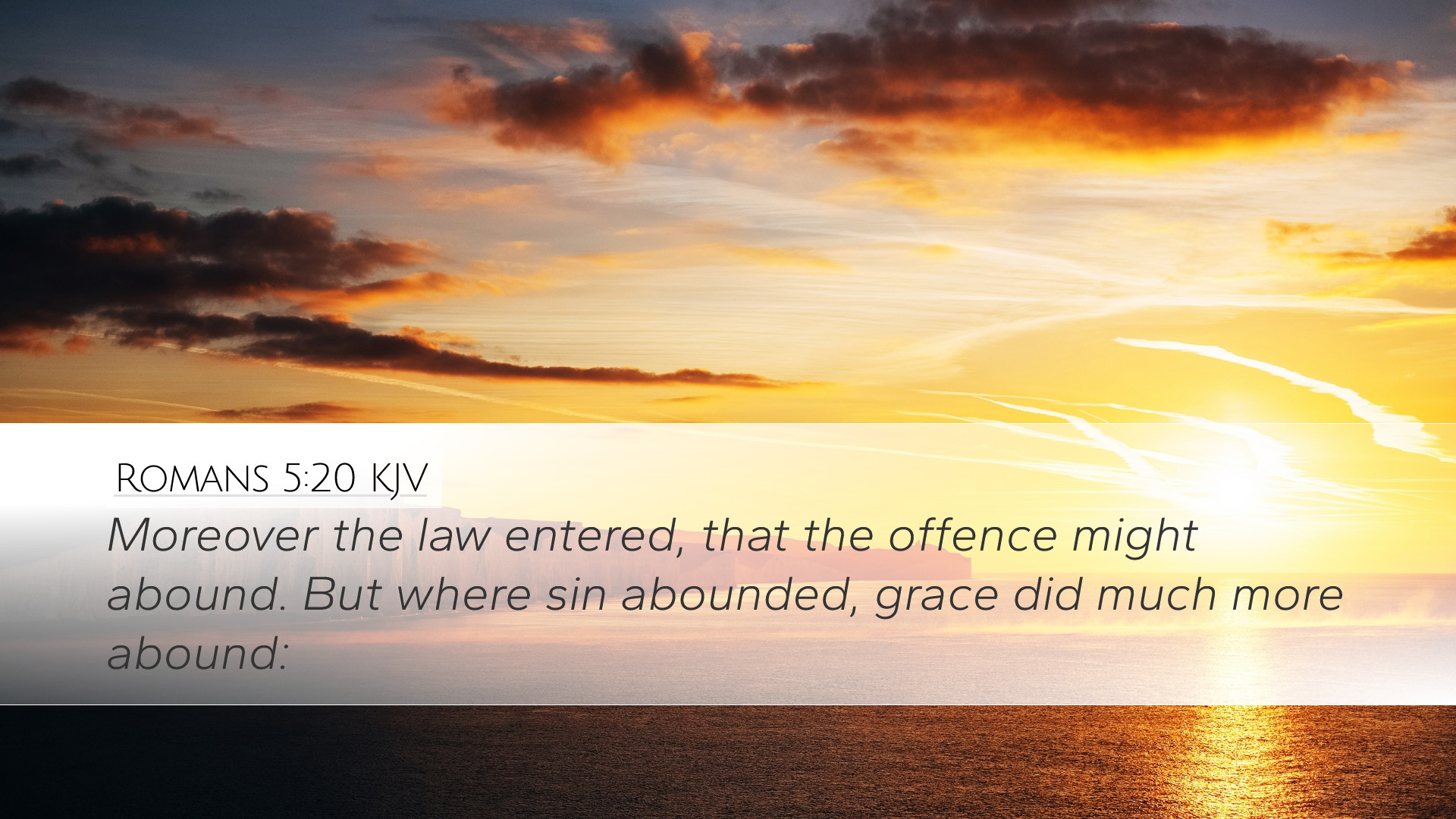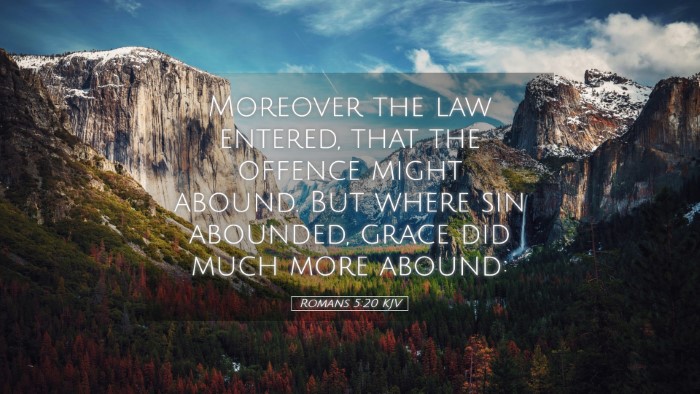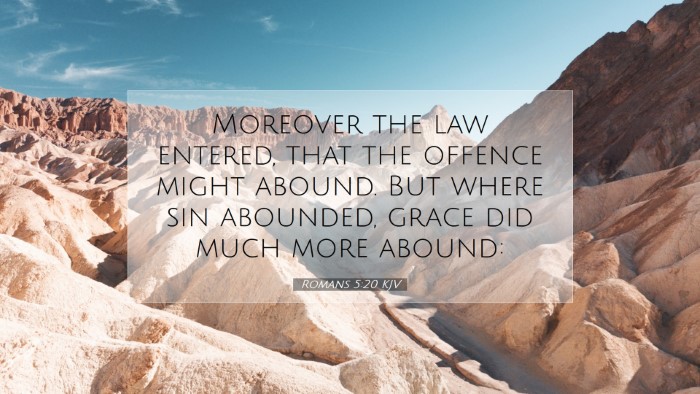Old Testament
Genesis Exodus Leviticus Numbers Deuteronomy Joshua Judges Ruth 1 Samuel 2 Samuel 1 Kings 2 Kings 1 Chronicles 2 Chronicles Ezra Nehemiah Esther Job Psalms Proverbs Ecclesiastes Song of Solomon Isaiah Jeremiah Lamentations Ezekiel Daniel Hosea Joel Amos Obadiah Jonah Micah Nahum Habakkuk Zephaniah Haggai Zechariah MalachiRomans 5:20
Romans 5:20 KJV
Moreover the law entered, that the offence might abound. But where sin abounded, grace did much more abound:
Romans 5:20 Bible Commentary
Commentary on Romans 5:20
Verse: "Moreover the law entered, that the offence might abound. But where sin abounded, grace did much more abound." (Romans 5:20, KJV)
Introduction
This verse serves as a pivotal declaration of the nature of sin, law, and grace in the believer's life. In this commentary, we will analyze and synthesize views from notable public domain commentaries, providing insights that are valuable for pastors, students, theologians, and Bible scholars.
Contextual Background
To fully understand Romans 5:20, it is essential to grasp the surrounding context. The Apostle Paul is explicating the relationship between sin, the law, and grace. Prior to this verse, Paul has been setting forth the universal nature of sin and the ensuing justification available through faith in Christ.
The Role of the Law
Matthew Henry emphasizes that the law was introduced not as a means to salvation, but to reveal the sinfulness of sin. The law makes sin apparent, amplifying our awareness of transgression. This is instrumental in convicting humanity of its need for redemption.
Abounding Offense
Paul states that “the offence might abound,” illustrating how the law serves to increase the visibility of sin. Albert Barnes comments on this phrase, noting that the entrance of the law allows individuals to realize their transgressions. Grace is contextualized against the backdrop of human failure and guilt.
Grace in Contrast to Sin
In this verse, Paul makes a remarkable transition from the reality of overwhelming sin to the sufficiency of grace. The latter part of the verse declares that “where sin abounded, grace did much more abound.”
The Abundance of Grace
Adam Clarke informs us that the grace of God is not merely sufficient but superabundant. While sin reaches lofty heights, God’s grace rises far above it, offering hope and redemption. Clarke highlights that grace outstrips sin's tyranny, affirming the power of God's mercy in the face of human depravity.
Theological Implications
The implications of this verse are profound. As Matthew Henry succinctly puts it, the law binds us to the reality of our transgressions while simultaneously pointing us to the greater truth of grace. This indicates that while we are aware of our sinful nature, we are simultaneously drawn to the redemptive work of Christ.
Pastoral Application
For pastors, Romans 5:20 can be a source of great encouragement. The law serves to create an awareness of sin, but it is grace that provides hope. This can be an instructive message to congregations, emphasizing that no one is beyond the reach of God's mercy.
Encouragement for Believers
Believers are reminded through this passage that their sins, though numerous, do not surpass God's grace. Albert Barnes suggests that this is essential for spiritual growth; when one recognizes the magnitude of grace, it deepens understanding and appreciation for salvation.
Conclusion
In summary, Romans 5:20 encapsulates the relationship between law, sin, and grace. The critical insights from public domain commentaries reveal a God who allows the law to expose the depth of human sin, yet provides an exceedingly abundant grace that surpasses our failures. This verse is significant not only for individual believers but also for the collective Church in understanding the nature of God's redemptive plan.
Final Reflection
As we reflect on Romans 5:20, we are invited to dwell on the grace of God that abounds even in the recognition of our sin. This is not a license to sin but an empowering truth that encourages us to respond to God's grace with faith and a life of righteousness.


